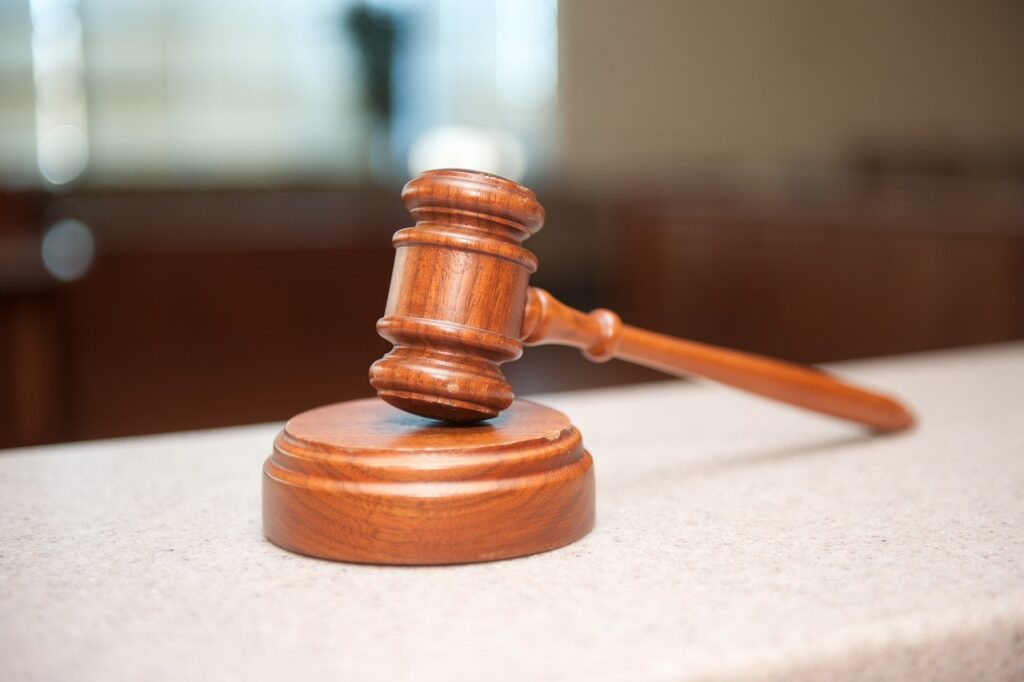Published on 14th January 2025
Authored by: Tashu Chauhan
Bharati Vidyapeeth, Pune
Abstract
Section 23 of Bharatiya Sakshya Adhiniyam (hereinafter referred to as BSA), 2023 revolves around information received from an accused while investigating, whether this information amounts to a confession, and, if yes, when and how much of it can be considered as a confession. Section 23 of BSA[1] corresponds to Sections 25, 26 and 27 of the Indian Evidence Act[2] (hereinafter referred to as IEA), coupled into one. Section 23(1) and (2) have been interpreted and used in legal proceedings without any issue but “provided that” part of the section has always been a topic of debate. This Article aims to interpret and understand Section 23 of BSA, its admissibility and constitutional safeguards.
Introduction
Section 23(1) and (2) are safeguards and protections against self-incrimination stating that the confession made by an accused while in custody to a police officer is not admissible as evidence against himself unless and until the same has been made in the immediate presence of a Magistrate. Section 23 “provided that” part is an exception to Section 23(1) and (2) stating the conditions where the information discovered from the confession of the accused can be used as evidence. Therefore Section 23(1) and (2) are protections and “provided that” part is a proviso.
The point of debate arises from the interpretation of Section 23 “provided that” part (correspondence to Section 27 of IEA) and the meaning given to it by courts in plenty of the previous judgments and precedents.
Purpose of Section 23 and the Safeguard provided in Article 20(3)
The Constitution of India provides safeguards, enshrined in Article 20(3), for an accused against self-incrimination stating “no accused can be compelled to provide evidence against himself”[3]. This safeguard is provided to him to protect him from custodial violence or forcibly making him confess against himself. Section 23 proviso is, however, an exception to it aiming to establish a balance between admissions of statements that led to the discovery of fact and providing safeguards to the accused against coerced confessions.
Therefore according to Section 23 proviso, not the entire statement given by the accused to the police while in custody, but only certain parts from that can be admissible in the court so that critical pieces of evidence are not unjustly excluded and justice is served while respecting legal right given to an individual under Article 20(3).
“How much of information received from the accused may be admissible”:-
Confession or statement of an accused to a police officer while in custody, only certain parts of it which leads to discovery of a fact or information are admissible in the court as evidence. The conditions for this are:-
-
The Accused must have committed an offence.
- He must be in police custody and the police records his statement under Section 23.
In Suresh Chandra Tiwari and Anr. V. State of Uttarakhand[4], appeal to set aside conviction was granted because recovery of incriminating objects and evidence based on the accused’s statement en route to the police station before recording of the statement at the police station was considered to be inadmissible.
- He voluntarily gives information to the police.
If the information is involuntarily and forcibly obtained, it would be invalid as per Section 23(1) and (2).
- The information leads to the discovery of a fact.
In Pulukuri Kottaya V. King Emperor[5], the court provided a limited and restricted scope for Section 27 of IEA (correspondence to Section 23 proviso of BSA), it was held that from the confessional statement the part that leads to discovery of fact only that will be admissible and considered as an evidence. The Court also held that there should be a distinct and direct link between confession and discovery. The Court further held that the discovery of fact should be related to a physical object and its location only and not to a mental fact.
- What Concludes as discovery of fact:-
“Fact” as per Bharatiya Sakshya Adhiniyam, 2023 Section 2(f) [correspondence to Section 3 of IEA] means and includes not only physical objects but also the mental state and condition of which a person is conscious. Henceforth, In Asar Mohd V. State of Uttar[6] Pradesh, the part of the judgment in the Pulukuri case related to the fact being restricted to physical objects only was overruled and the court in this case held that the concept of ‘fact’ is not limited to physical objects alone but it also includes mental facts that are directly relevant to the case.
In Udai Bhan V. State of Uttar Pradesh[7] the court clarified the distinction between confession and discovery stating that handing over physical evidence is not equivalent to making a confessional statement, it merely is providing information that leads to factual discoveries.
In Mohd. Inayatullah V. State of Maharashtra[8] the court further supported Asar Mohd.’s Judgement and also held that past history would not be admissible, only present distinct the statement will be admissible as evidence.
- The accused must have exclusive knowledge of the fact.
Exclusive knowledge is that which is limited to a particular person or group and is not shared with others. To admit the information, under Section 23 proviso, it should be exclusively known to the accused. If the information by the accused leads to discovery that is openly accessible or can be easily found even without his statement or assistance such information can hardly be called as an information admissible under Section 23.
In Sunita Mundari V. State of Odisha[9], the court further clarified that the discovery should not only be openly accessible but also visible to the bare eyes of people to consider it not admissible under Section 27 of IEA (correspondence to Section 23 of BSA).
- The discovery must be corroborated by other pieces of evidence. (Doctrine of Confirmation by Subsequent Events)
In Dost Mohd V. State, the mental fact that the cause of death was gunshot injury, the statement was derived from the accused and was taken as incriminating evidence after it was confirmed by subsequent event, i.e., in post mortem the bullet was recovered from deceased’s chest cavity.
Ranbir Yadav V. State of Bihar[10], K. Chinnaswamy Reddy V. State of Andra Pradesh[11], Jaffar Hussain Dastagir V. State of Maharashtra[12] and State of Maharashtra V. Damu[13], all these cases reinforced the principle that the discovery of a fact must involve more than just the uncovering of fact, it necessitated the revelation of information that corroborates the occurrence of an event or fact relevant to the case.
Illustrations
If an accused states to a police officer such as:- “I have kept the weapon I used to kill Mr. A in the basement of my house”, with corroborated evidence the weapon is found in the exact place told by the accused, from this statement information related to the knowledge of the place will only be considered admissible and nothing else.
The presumption here is that the corroborated information is in prima facie true but the confession about killing might be forcibly induced or given under false promises of lowering the accused’s punishment, etc., and all this cannot be considered admissible under section 23(1) and (2).
The Link between Custodial Violence and Section 23: Why Reform is Necessary
Habemus Optimum Testem Confitentem Reum, a Latin maxim, literally means we have the best witness, a confessing defendant or in simpler words confession of an accused is best evidence against himself. A very true statement. But a confession of an accused against himself can only be relied on when it is made voluntarily out of guilt.
Section 23 proviso, however, can create temptation for misuse by police officers to obtain confession from an accused. The accused sometimes might become prey to custodial violence. Police officers might try to exploit this provision to admit evidence that would otherwise be excluded, but there can be no proof of whether the statement made by the accused to a police officer while in custody is voluntary or involuntary. While not every case involves coercion, the section’s existence encourages questionable practices to invoke it in ways not intended by the legislature and therefore it is contented by many jurists, advocates and human rights organisations that this provision needs to be amended.
Suggested Amendment
The 152nd Report of the Law Commission[14] proposed revising then Section 27 of IEA (Now Section 23 of BSA) as:
“Discovery of facts as the instance of the accused. When any relevant fact is discovered based on information from an accused, whether in police custody or not, only the fact discovered may be proved, not the information itself, whether it amounts to a confession or not.”
This revised version focuses on adopting the approach taken in the English Law Section 76(4) of the English Act, 1984 which states that the admissibility should to restricted to only the ‘facts discovered’ avoiding reliance on parts of the confession. Meaning that the confession, all together, should not be admissible as evidence not even the parts leading to discovery of fact. The only thing to be considered admissible is the fact discovered.
The Report also suggested that the exclusionary provision contained in Section 23(1) and (2) of BSA which is confined to police officers only should be extended to all public servants, meaning that statements made by an accused to any public servant shouldn’t be admissible as evidence unless and until it is made in immediate presence of Magistrate.
Conclusion
Section 23 of BSA has a very in-depth interpretation that needs to be comprehensively studied to be implemented. This section (say Section 27 of IEA) has contributed both in a positive way, by allowing admission of critical pieces of evidence resulting in the conviction of the accused and serving justice to the victim, as well as in a negative way, against accusers by being misused by police officers resulting in custodial violence or against victims by giving a benefit of doubt to the accusers and acquitting them even though they were prima facie guilty and on this account it is necessary to bring requisite amendments to the section to ensuring and upheld justice to victim as well as to accused’s who are innocent.
References
[1] Bharatiya Sakshya Adhiniyam, 2023
[2] Indian Evidence Act, 1872
[3] Article 20(3), The Constitution of India, 1950
[4] Suresh Chandra Tiwari and Anr. V. State of Uttarakhand 2024 LiveLaw (SC) 932
[5] Pulukuri Kottaya V. King Emperor AIR 1947 PC 67
[6] Asar Mohd. V. State of Uttar Pradesh AIR 2018 SC 5264
[7] Udai Bhan V. State of Uttar Pradesh, 1962 AIR 1116, AIR 1962 SC 1116
[8] Mohd. Inayatullah V. State of Maharashtra, 1976 AIR 483, AIR 1976 SC 483
[9] Sunita Mundari V. State of Odisha 2024 LiveLaw (Ori) 55
[10] Ranbir Yadav V. State of Bihar, 1955 AIR 1219, 1955 SCC (4) 392
[11] K. Chinnaswamy Reddy V. State of Andra Pradesh, 1962 AIR 1788, AIR 1962 SC 1788
[12] Jaffar Hussain Dastagir V. State of Maharashtra 1969 2 SCC 872
[13] State of Maharashtra V. Damu 2000 6 SCC 269
[14] Law Commission of India 152nd Report on Custodial Crimes, 1994




